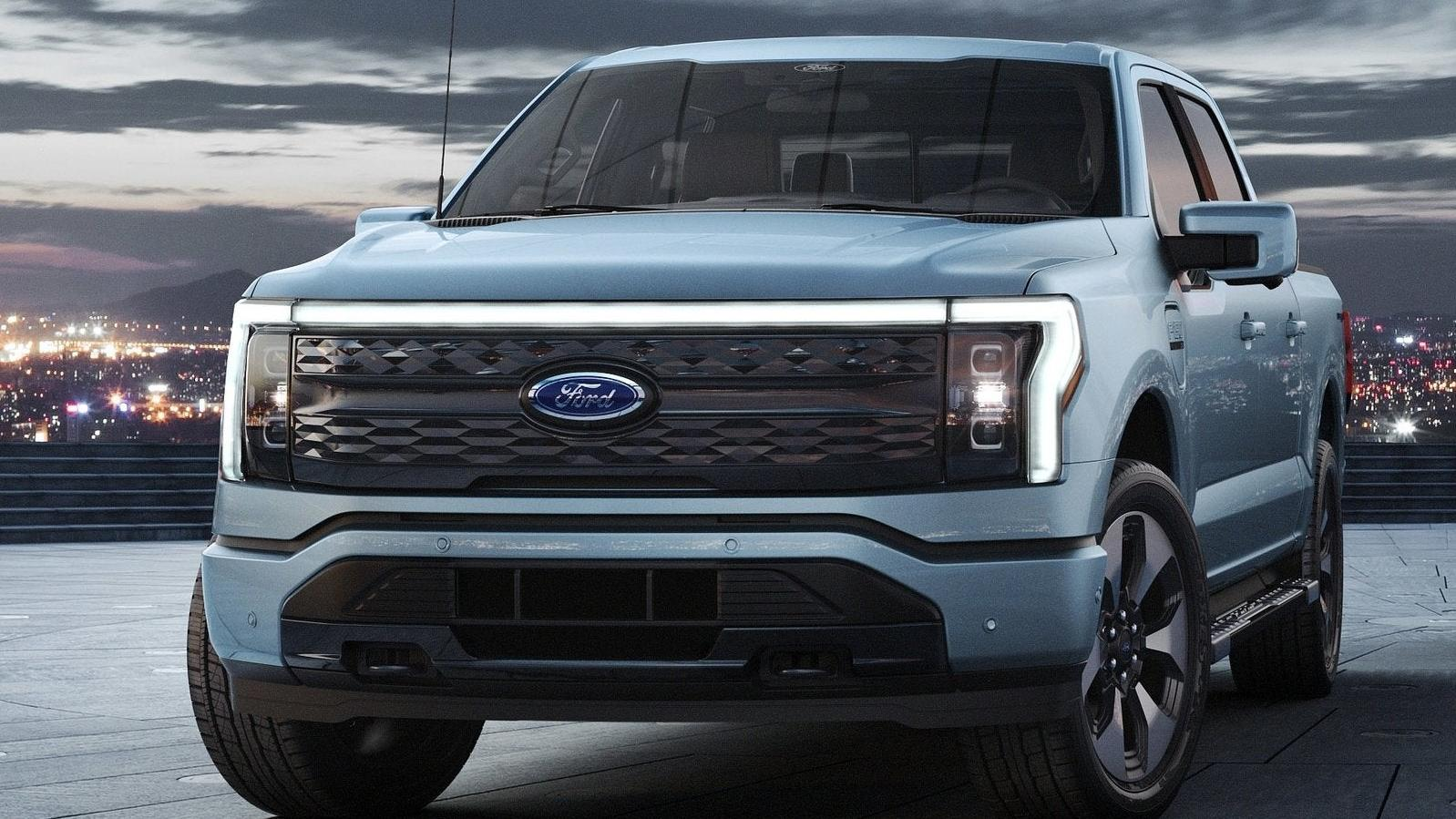Ford's Cracking Down On The Greedy Dealers Taking Advantage Of Lightning Reservation Holders
Well, sorta. A message from Ford to dealers addresses at least part of the problem because "it looks bad."
Ford has taken a small step in chastising dealers who want more money out of F-150 Lightning reservation holders. The F150gen14 owner's forum obtained a copy of a bulletin sent to a dealer by Ford outlining the behavior that should stop.
From the wording of the bulletin, it seems to have been sent to a dealer that's engaged in the very behavior the document is talking about. The first part, summarized, tells dealers to stop asking for more money from people who have reservations because it's a bad look:
It has come to our attention that a limited number of dealerships are interacting with customers in a manner that is negatively impacting customer satisfaction and damaging to the Ford Motor Company brand and Dealer Body reputation.
Examples of these negative interactions include demanding that customers who are already on the reservation list for the 22 MY F-150 Lightning make additional deposits or payments. These actions are perceived as threatening customers by withholding their opportunity to convert reservations to orders.
This behavior is not allowable under Paragraph 6 of the Sales and Service Agreement. Paragraph 6(6) states that The Dealer shall conduct DEALERSHIP OPERATIONS in a manner that will reflect favorably at all times on the reputation of the Dealer, other Company authorized dealers, the Company, COMPANY PRODUCTS and trademarks and trade names used or claimed by the Company or any of its subsidiaries. The Dealer shall avoid in every way any "bait", deceptive, misleading confusing, or illegal advertising or business practices.
Ford does get properly threatening though, saying if a dealer is doing any of this, they won't get Lightning allocations for the rest of the year:
If it is determined that your dealership is engaging in such practices, Ford Motor Company reserves the right to redirect that dealerships allocation of the F-150 Lightning for the entirety of the 2022 MY.
The second part of the email, however, is a bit troubling. It outlines a No-Sale Provision for Lightning customers:
No-Sale Provision
In order to prevent the re-sale of 22MY F150 Lightning, Ford is offering support for a No-Sale Provision to be signed by the customer at the time of purchase. Dealers may add this language to existing closing forms or create a new standalone document:
Purchaser hereby agrees that it will not sell, offer to sell, or otherwise transfer any ownership interest in the Vehicle prior to the first anniversary of the date hereof. Purchaser further agrees that Seller may seek injunctive relief to prevent the transfer of title of the Vehicle or demand payment from Purchaser of all value received as consideration for the sale or transfer.
Dealers should consult with their legal counsel to address any state-specific requirements questions. For questions, contact your Regional Manager.
We've seen something similar like this from Ford before, when it released the second generation of the GT a few years ago. While understandable to implement something like a No-Sale Provision for a low production supercar like the GT, it makes no sense on what will eventually be a mass-produced EV.
The second problem comes down to simply the Lightning being a new vehicle with unproven technology. As one user on the owner forums pointed out, if problems arise and they wanna get rid of it, they'll be stuck with it for a year.
There are gigantic holes in the U.S. CCS charging network, and many places where there appear to be some but there's only one, which may sit broken for months or years when it breaks, which it will at some point. So Ford wants dealers to tell me that if I buy this truck and then find I can't charge and use it, I can't trade or sell it? Fun!
If a gray market/resale of a product is a problem, there's an answer. Charge more or make more of the product.
While this "crack down" on greedy dealers is good in some ways, it remains an empty threat to the wrong problem: the markups. So, dealers can't charge you extra for your reservation, but those markups will hit when the truck is delivered. And there's no reason a customer should wait around for a year, for a car they reserved, only to be told they need to pay an extra $20,000 once it finally arrives at the dealer.
